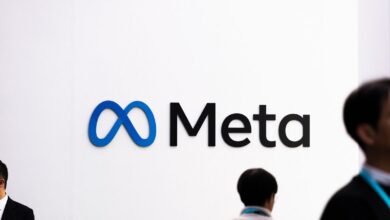Perplexity Labs Aims to Automate Your Work Tasks

▼ Summary
– Perplexity Labs launched an AI-powered tool for Pro subscribers, enabling report creation, data analysis, and visualizations in about 10 minutes using web search and code execution.
– Facebook and Anduril, led by Palmer Luckey, announced a collaboration to develop XR devices called EagleEye for the U.S. military, ending their feud.
– A World Economic Forum survey found 40% of employers plan to cut staff due to AI automation, raising concerns about job displacement.
– The Browser Company is shifting focus to an AI-powered browser called Dia, while Opera and Perplexity also announced AI-focused browser projects.
– LexisNexis Risk Solutions reported a breach affecting 364,000 people, exposing personal data like Social Security numbers, after hackers accessed its GitHub account.
The future of workplace automation is here as Perplexity Labs launches powerful AI tools capable of generating reports, analyzing data, and creating visualizations in minutes. This new offering gives Pro subscribers access to advanced features like web research, code execution, and dynamic chart generation—potentially transforming how professionals handle routine tasks. While the technology promises efficiency, real-world performance may vary given AI’s current limitations.
In other tech developments, Oculus founder Palmer Luckey has partnered with Meta to develop military-grade extended reality devices under the EagleEye project. This collaboration marks an unexpected reconciliation between Luckey and Mark Zuckerberg after years of public tension.
Concerns about AI displacing workers continue to grow, with a World Economic Forum survey revealing 40% of employers plan workforce reductions where automation can take over. The trend highlights the double-edged nature of AI advancements in the labor market.
Browser innovation takes center stage as The Browser Company shifts focus from Arc to an AI-powered browser called Dia, joining Opera and Perplexity in the race to reinvent web navigation. Meanwhile, WhatsApp finally delivers a dedicated iPad app with full support for iPadOS multitasking features—a long-awaited upgrade for Apple users.
Security breaches dominated headlines this week, with LexisNexis confirming a GitHub hack exposing sensitive personal data for over 364,000 individuals. In a separate incident, hackers reportedly accessed White House staff communications using AI voice impersonation techniques.
Google continues integrating AI deeper into its ecosystem, automating email summaries in Gmail through Gemini unless users manually disable the feature. On the investment front, Grammarly secured a staggering $1 billion funding round from General Catalyst to accelerate growth and acquisitions.
Dating app Tinder experiments with height preference filters, though the company clarifies these won’t exclude matches—only refine recommendations. Meanwhile, a decade-old patent dispute resurfaces as Carma Technology sues Uber over alleged intellectual property violations dating back to the rideshare giant’s early days.
From automation breakthroughs to high-stakes partnerships and security challenges, this week’s developments underscore technology’s rapid evolution across industries. The balance between innovation and its societal impact remains a critical conversation as these tools reshape how we work and interact.
(Source: TechCrunch)
